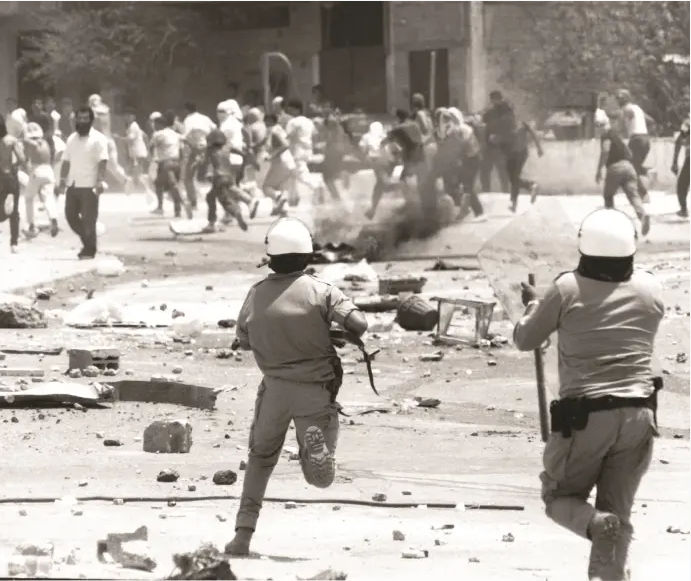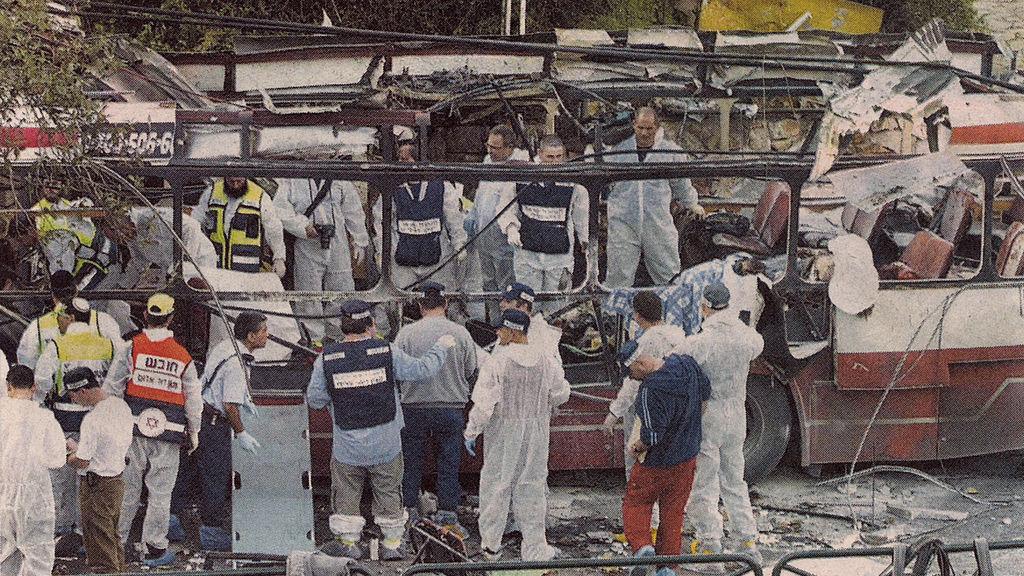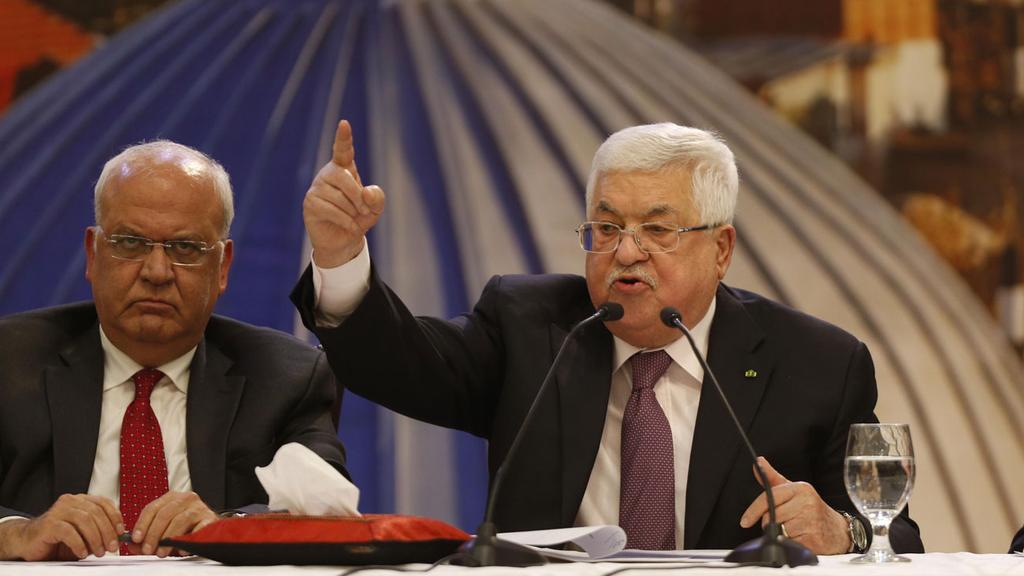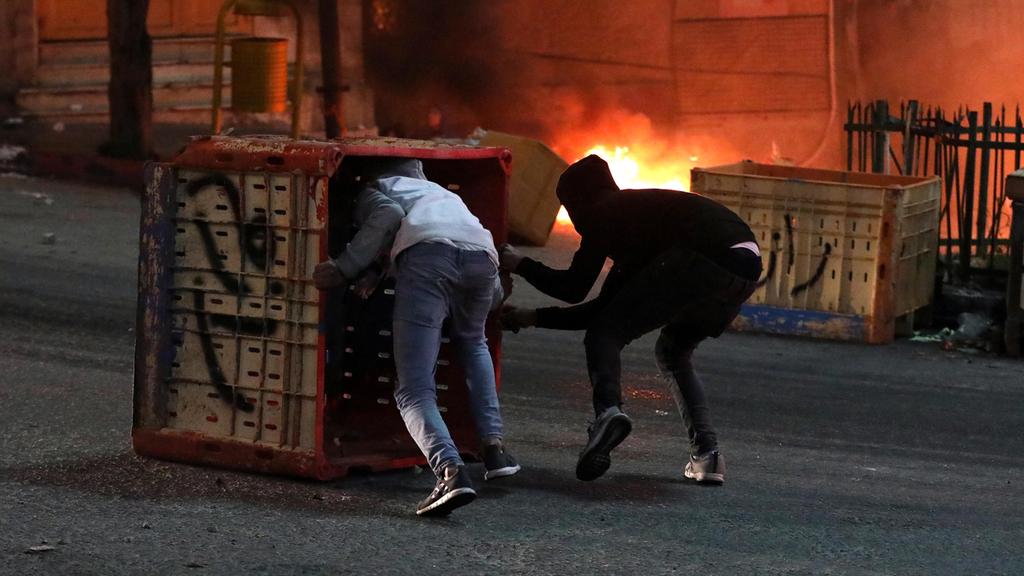Getting your Trinity Audio player ready...
Every two or three violent incidents involving the Palestinians is followed by a rush of media pundits all clamoring to be the first to wonder: "Is Israel on the cusp of a new intifada?"
Only a lack of vocabulary forces anyone to brand any series of sporadic clashes as "an intifada." So let me be clear: there has been just one intifada.
It broke out in December 1987 and ended with the signing of the Oslo Accords in the summer of 1993.
The intifada was a resistance movement that touched every household in the West Bank.
It brought tens of thousands of people from all sectors of Palestinian society onto the streets of Nabulus, Hebron and Gaza, carrying stones and Molotov cocktails.
It focused on organized rather than popular violence. It was initially perceived as spontaneous but was long-planned by nameless leaders.
4 View gallery


Israeli police officesr clashing with Palestinians in Nablus during the First Intifada
(Photo: Archive )
It was called the "White Intifada" due to the Palestinian avoidance of terror attacks that later became were far more prominent, a decision that garnered the protesters much international support.
Within the history of the "Occupied Territories," the intifada is merely one in a series of clashes, which include a Great Arab Revolt in 1936 and the Nakba of 1948.
But just like the French Revolution, there is only one intifada to truly earn the name.
Therefore, the labeling of the series of terror attacks between 2000-2005, which included barbaric suicide bombings against Israeli civilians, as the "Al-Aqsa Intifada," is a frustrating misnomer.
It was created by a pen-pusher who got excited at using the word to describe the continuing wave of attacks, pandering to the lowest common denominator.
Yet the international support that the Palestinians received back in the 1980s was completely gone by the early 2000s.
4 View gallery


The March 2003 suicide bombing on a Haifa bus that killed 17 people
(Photo: Archive )
Using this word to describe parents who sent their sons and daughters to carry out suicide bombings on buses, in supermarkets and at malls, or for despicable cold-blooded murderers who took the lives of the elderly and children at a Passover Seder is nothing short of an verbal transgression from those who control the narrative.
It is time to find a new name for the series of terror attacks that sadly seem to be inching ever closer.
Impotent president
During every crisis in recent years – the eruption over the metal detectors at the entrance to Temple Mount, the relocation of the U.S. Embassy to Jerusalem, or the destruction of terrorists' houses – Palestinian President Mahmoud Abbas has issued a call to "take to the streets." And every time it bounced back like an echo in an empty chamber.
4 View gallery


Palestinian President Mahmoud Abbas, right, and top PLO official Saeb Erekat in Cairo last week to discuss the Trump peace plan
(Photo: EPA)
The Palestinians in the West Bank don't flood the streets anymore. They have lost all energy and are disdainful towards the corrupt leadership of the Palestinian Authority.
They have lost all motivation because they look at their brothers in the Gaza Strip and see that terrorism can pay, and if Abbas resigns, it is due to the indifference of his people.
Whenever Abbas is displeased at some international decision or other, he takes to his balcony and declares an end to security cooperation with Israel.
But since the mechanism was founded in 1995, it has ceased its activities only once, following the riots over the Western Wall tunnels in September 1996, and only then at Israel's initiative.
Hundreds of threats later and the cooperation is business as usual.
Abbas and his people know very well that the Israeli army is present in the West Bank mainly to protect the roads and the settlements within it, but as a byproduct, it also protects the Palestinian Authority.
Every Palestinian security officer knows that without the IDF, Abbas would have been forced to escape underground, just as his men did when Hamas seized power in the Gaza Strip in June 2007.
Here is a word of advice to Abbas - stop making threats because Israel does not care.
Col. (res.) Moshe Elad is a lecturer at Western Galilee College, the former IDF governor of Jenin and Bethlehem and former head of security coordination with the Palestinians during the Oslo Accords


